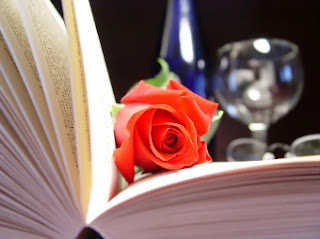http://elgar-acllearn.blogspot.com/ In other words thoughts on the Challenge!
The next comment Comes from The lady who started 2.0- Helena Blowers. I read a part of her blog and thought I would include a small section. To be fair I felt like including a whole lot more but you can catch it yourself
http://www.librarybytes.com/Over to HelenB...,
"On Privacy, Trust, Social Networks & Libraries
OCLC's latest report
Sharing, Privacy and Trust in Our Network World is must read. I've just skimmed it myself, but the
Report Highlights section offers lots to think about. Here's a few that stood out to me ...From On using the Web...
The Web community has migrated from using the Internet to building it. In 2005, just 16% of respondents used blogs; today that number approaches 50%. Approximately a quarter of the general public respondents have created Web pages and used chat rooms and social networking sites. The Internet’s readers are rapidly becoming its authors...."
So as one of the authors now, here are a few of my thoughts on Web2.0. How, Why,When and Where.
In Maori there is a legend which explains how one of the young men was late returning to his village when the sky became dark and finding it difficult to see in the forest as the stars appeared, he veered away to use the sands for his route. As he approached a rock strewn point he thought he heard voices 'The net ! The net here! Quick, the net!" Fearing for his life he
edged round the rocks and peered into the next bay. A few fairy people were in the water but more were on the shore pulling on ropes and dragging in loads of fish which they quickly gathered. The young man was very scared, but he stayed to watch as he had never seen anything like the quantity of fish being gathered so quickly. He realised what a wonderful help it would be to the tribe, so he studied the strange series of ropes all knotted together, each strand supporting and strengthening the whole....
The legend is very old- (check Grey's Polynesian Mythology) but the web has ever since been a succour to the people of the land of Aotearoa. It is not surprising that young kiwis of today have hooked into the www net of computers with the same avidity. Like the first fishing net the structure of the whole is strengthened and enlarged with each strand or input and it continues to grow so our knowledge must be continually extended.
Rick Anderson Of the University of Nevada writes of the importance of the net to the Libraries in his area now and in the future. He cites the 55% drop in circulation over 12 years and questions the whole "collection ethic". His figures should not surprise although they are totally different from our own. He is in an "information" environment in a university where reference points can quickly be accessed on the net and in particular academic journals available through databases. I could perceive this area growing in future.
Our Library functions as part of a community where the greater amount of our work is to enhance the joy of our patrons by supplying books to read- largely for entertainment. Of course, we have to act as a reference point too, so we also supply, books on pruning olive trees, or how to set up a septic system or the latest statistics on health. In this area we have books and the web. Our reference area now takes up less than half the shelves it used to, as we can access so much more information and images on the net. We also supply ebooks (and I think it will grow), but most prefer the "feeling" of a book. In this I find myself nodding approval with Dr. Wendy Schultz in her article on Infinite Futures ..., Libraries are not just collections of documents and books, they are conversations..., convocations of people, ideas and artifacts in dynamic exchange...they are communities"
It is of primary importance to be able to act as a Readers advisory- in the past I have done this largely through my own reading, in the future, I see wikis use in specialist areas eg 8-10year old boys books- which ones encourage them to read; the seniors who want a story with relationships rather than violence; use of sites such as LibraryThing to provide depth and knowledge and reviews of new publishing.
Our Digital Library usage is slowly growing as more are taught how to use it. Just as a child is taught to read and to enjoy books, so children today grow up in an environment where using the i/net, is as taken for granted as reading the paper. Many already do games, blogs, tags, wikis and imaging as part of a school project. It is the adults and seniors of today who have had to upskill, so I am glad that my own use of the web has been extended by the ACL learning programme. As Michael Stephens says in his article "Into a New World of Librarianship" Sharpen those skills for the Librarian2.0 -the user demands and deserves more. The knowledge of and use of available technology is an essential part of customer service, not only for the future but for now.

